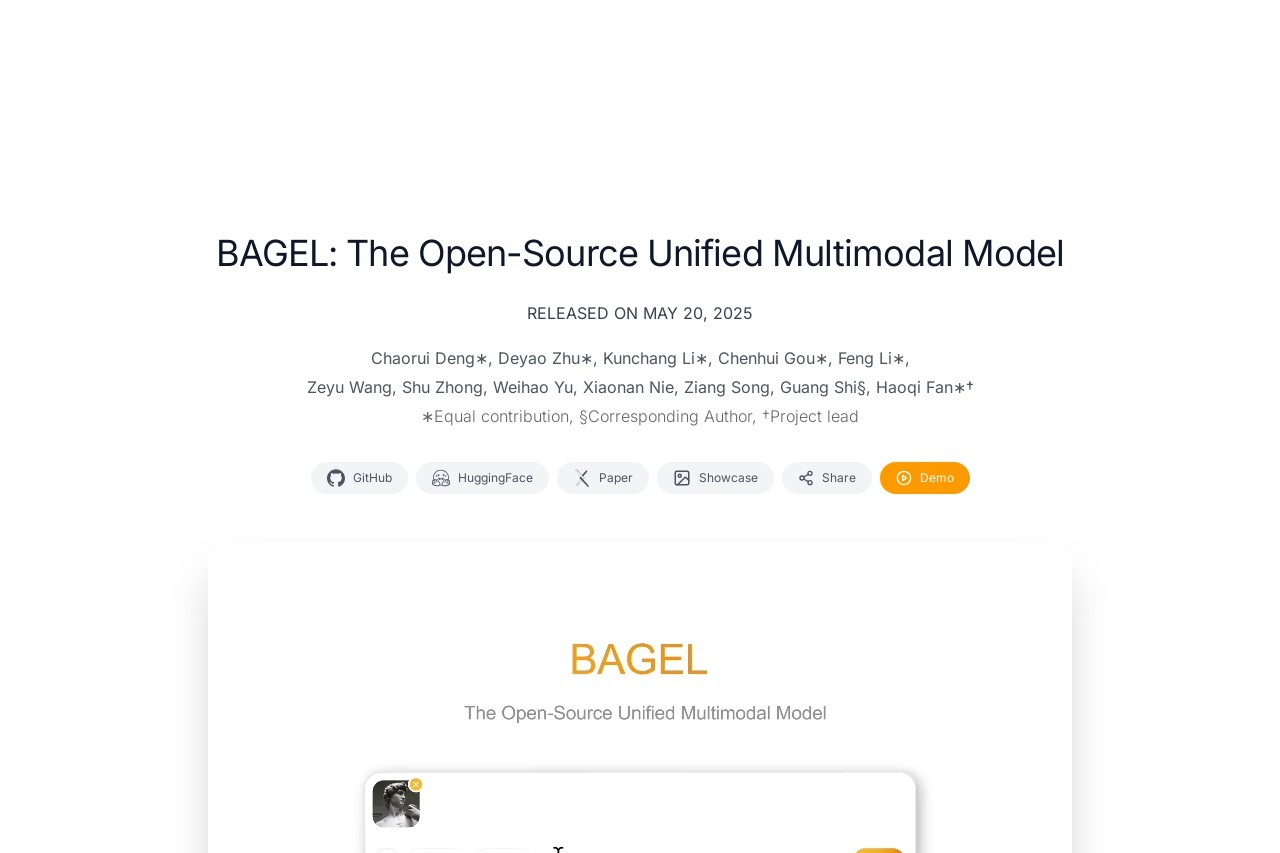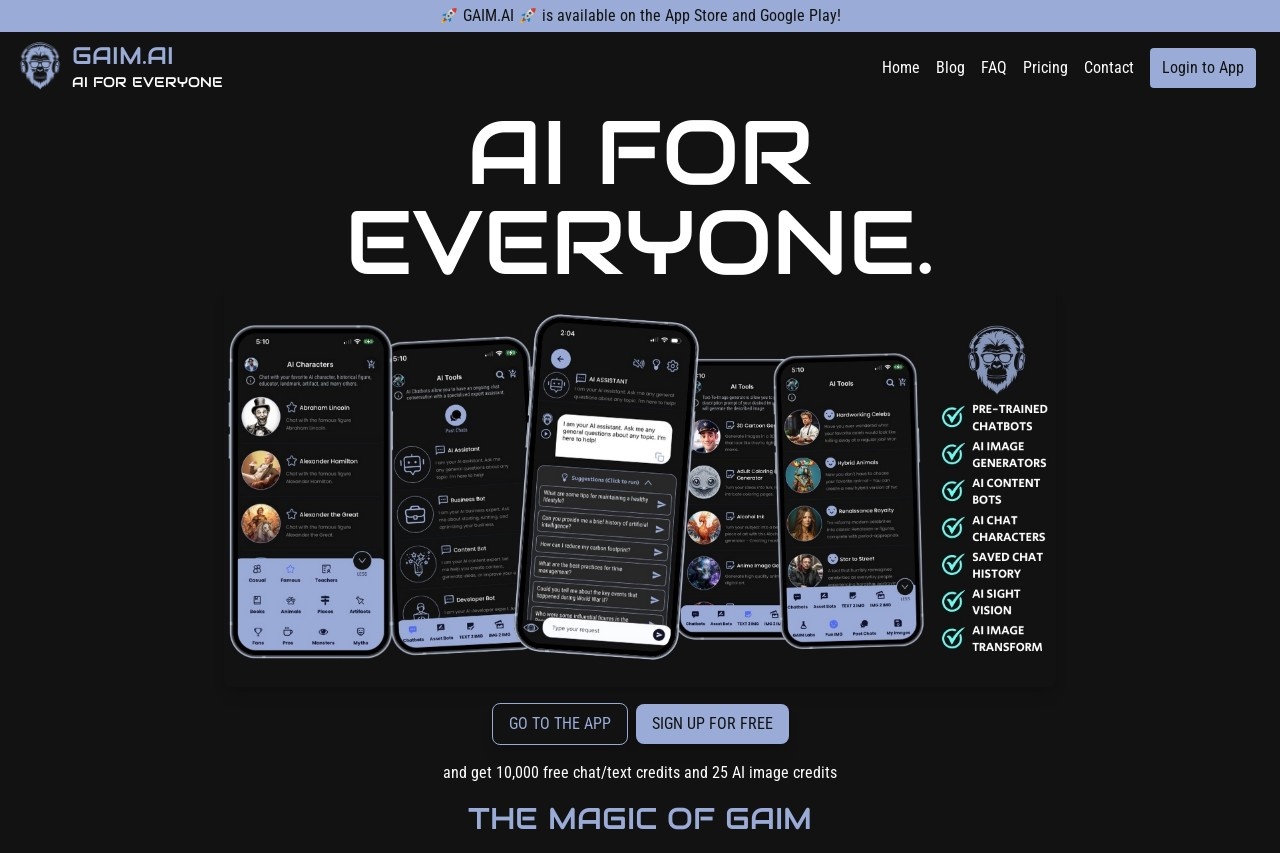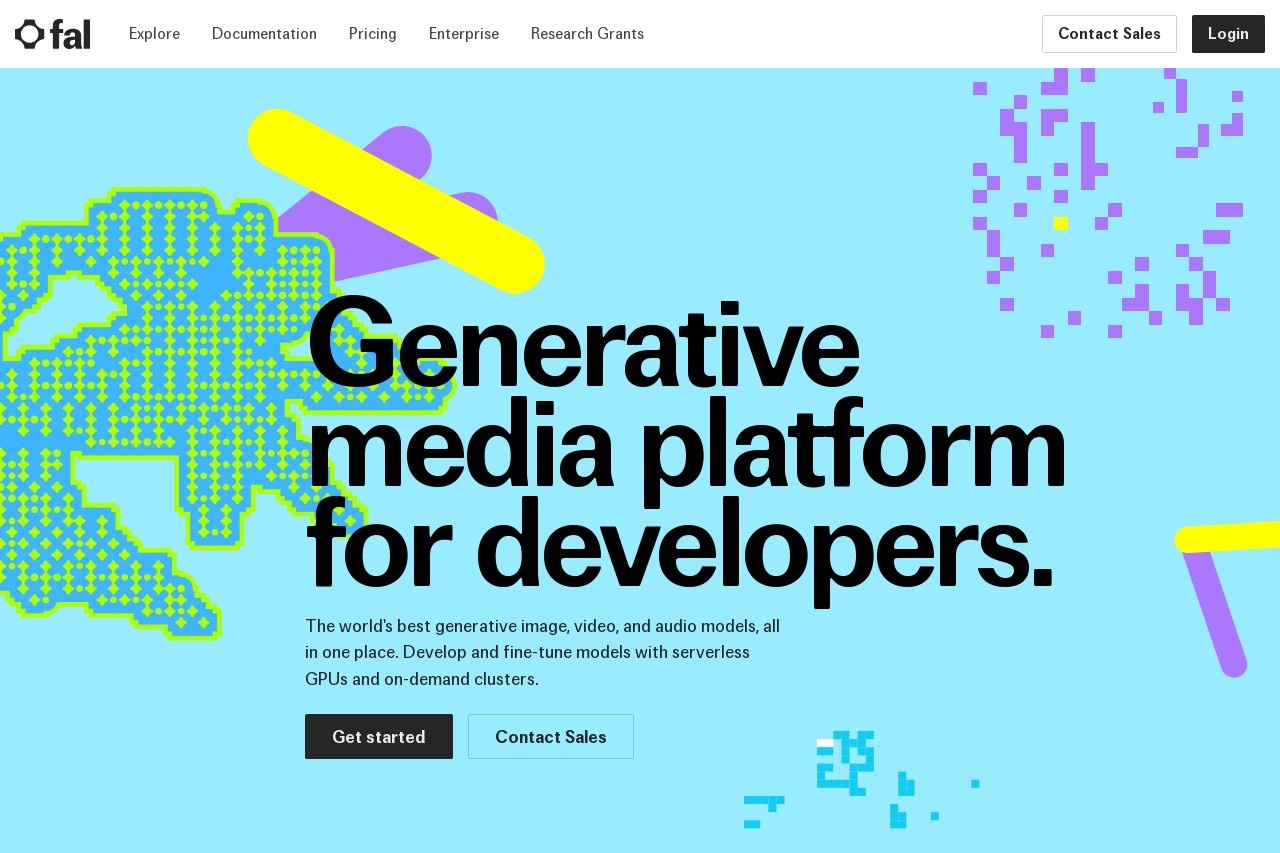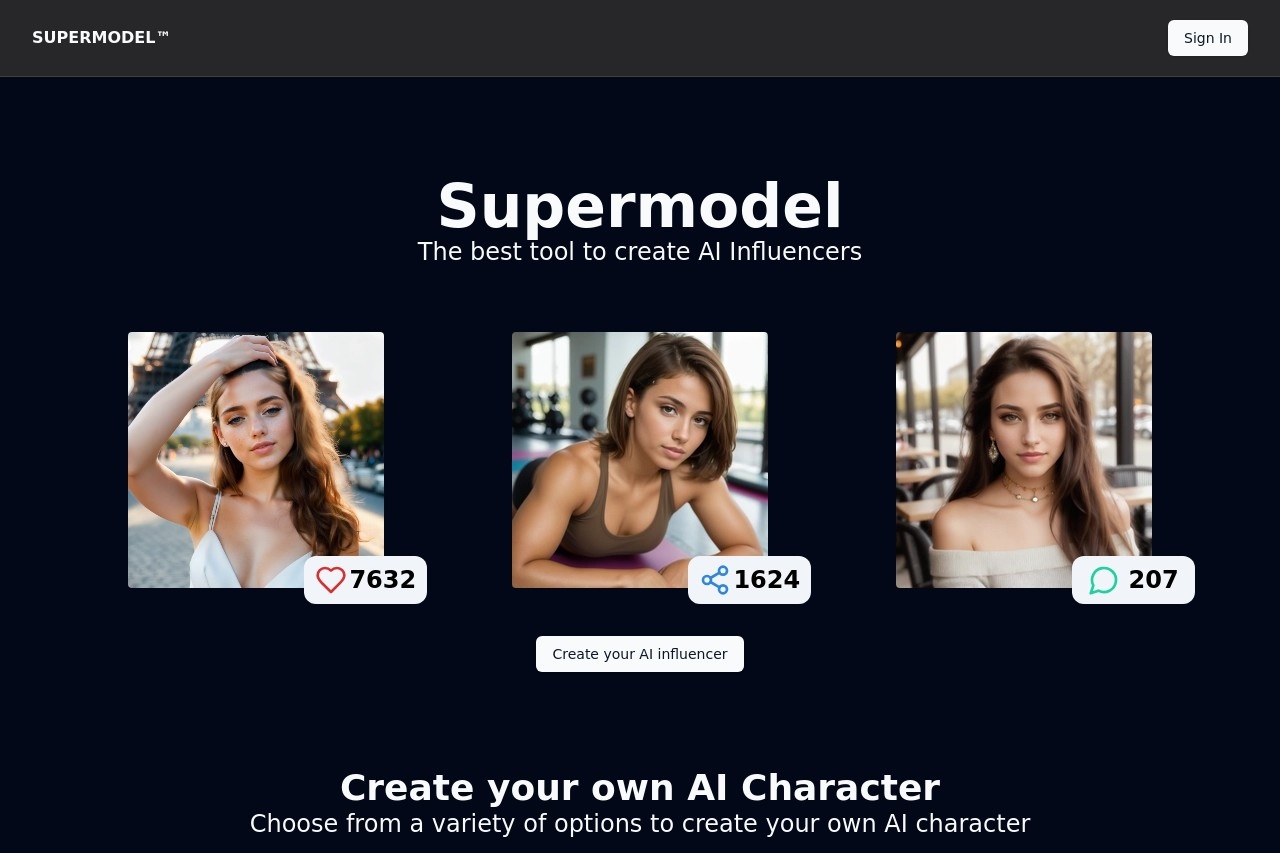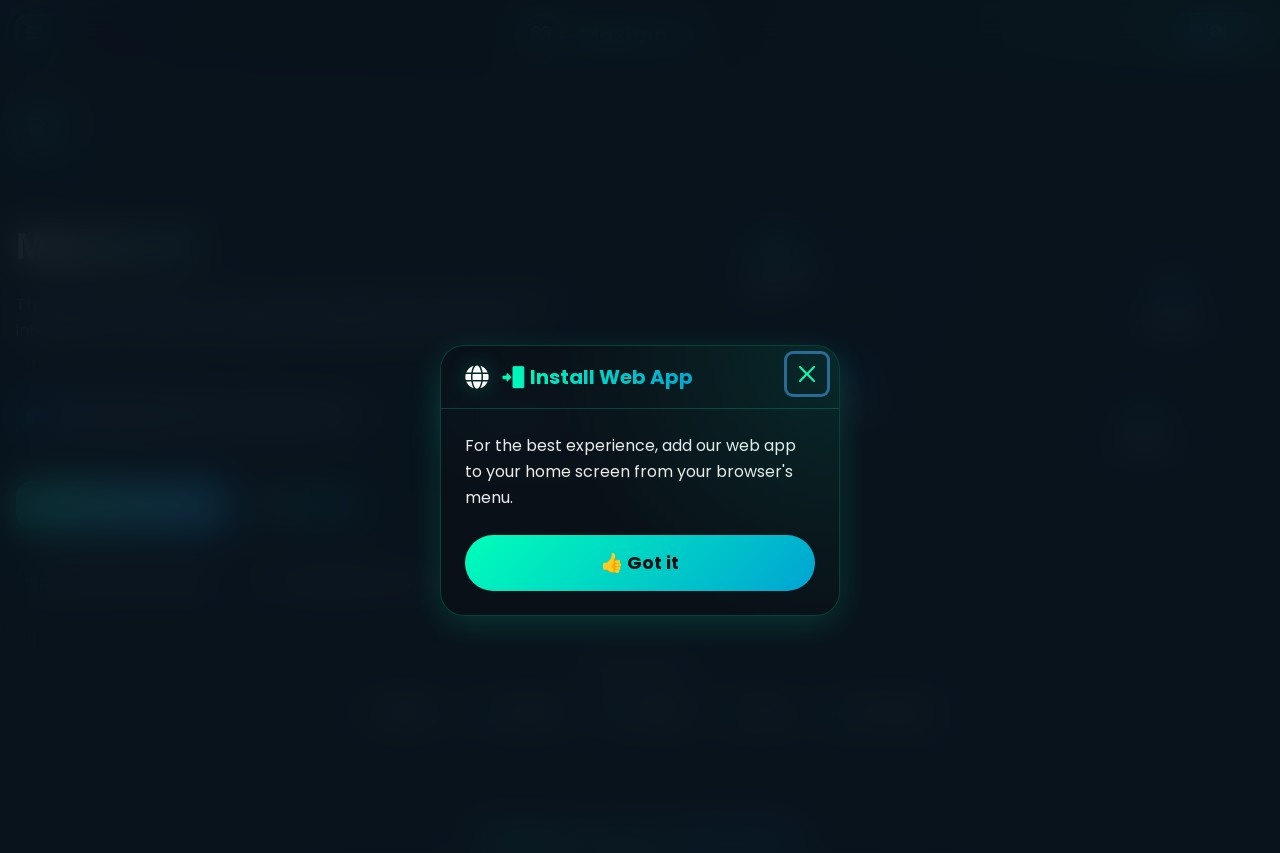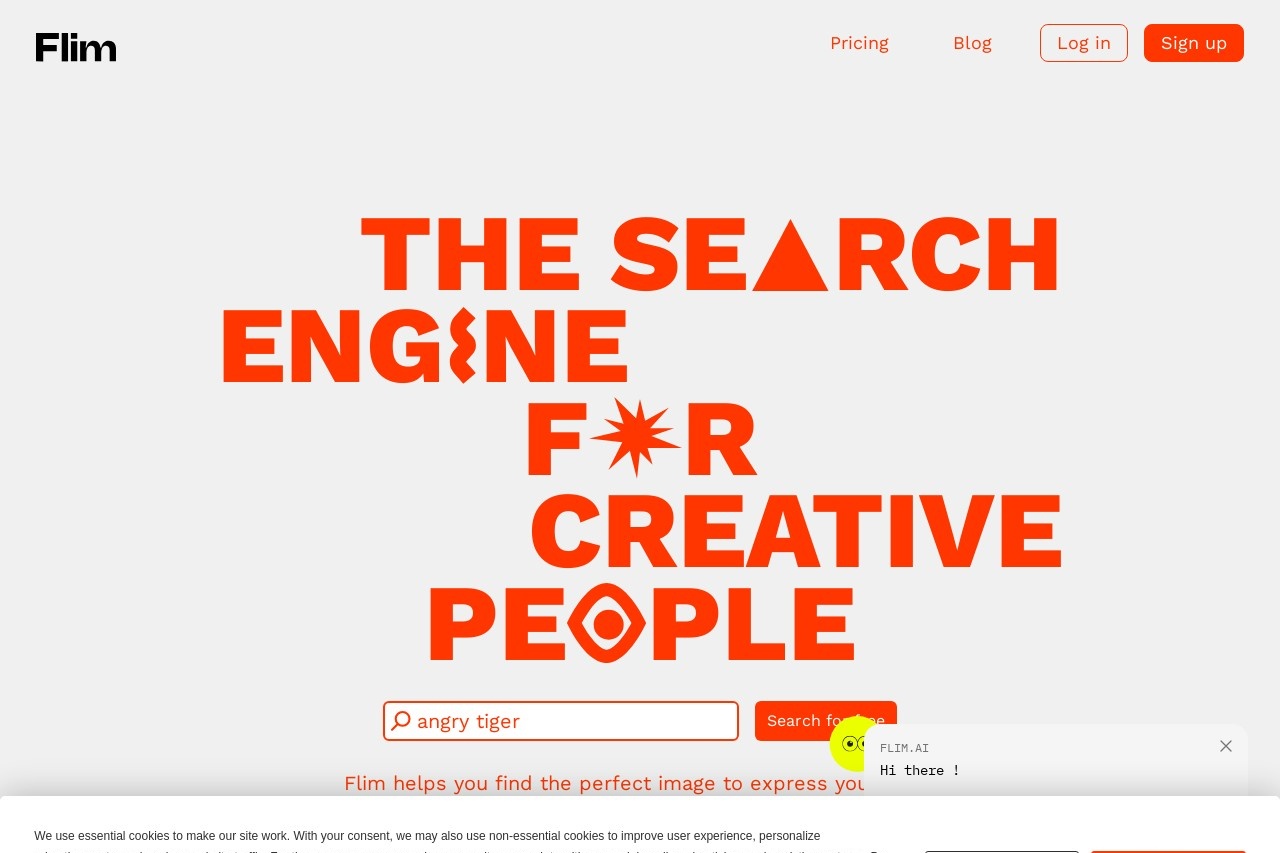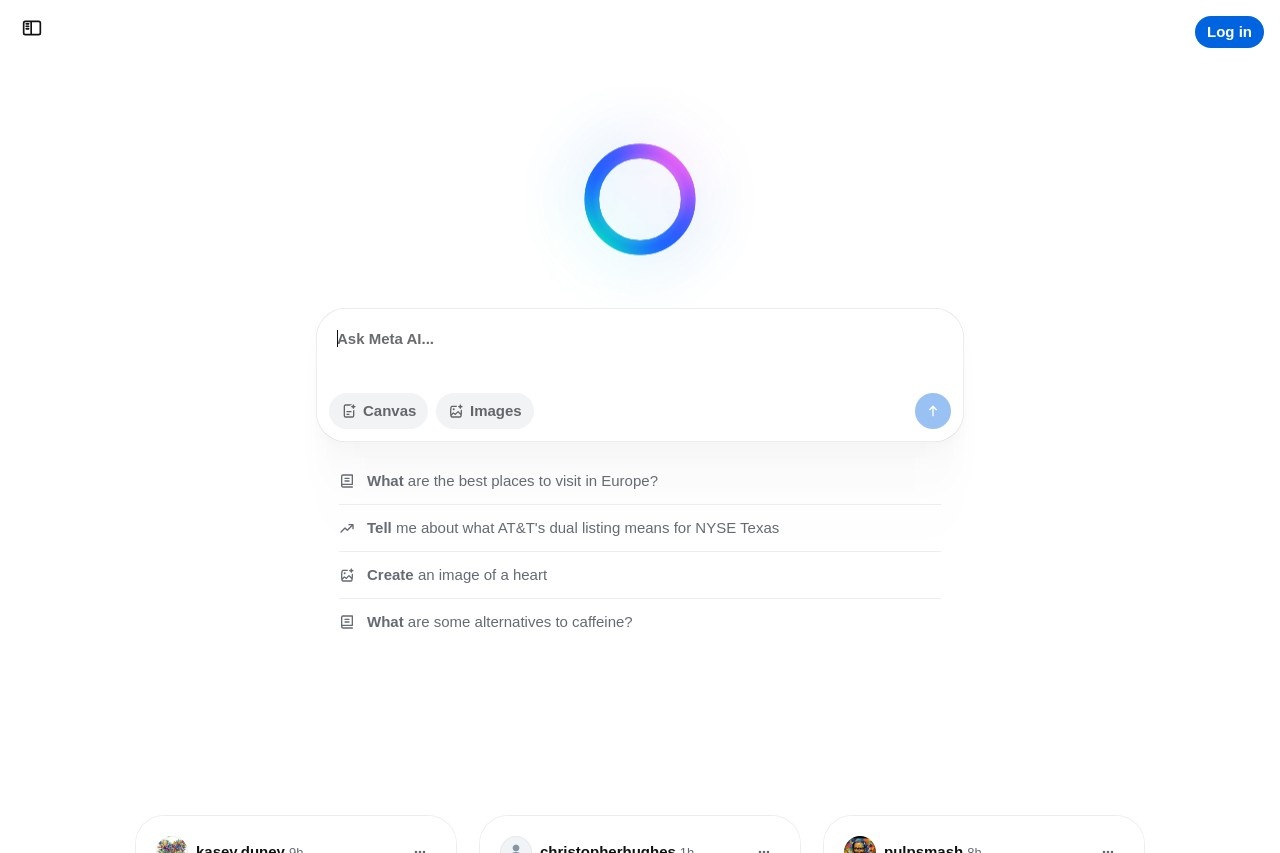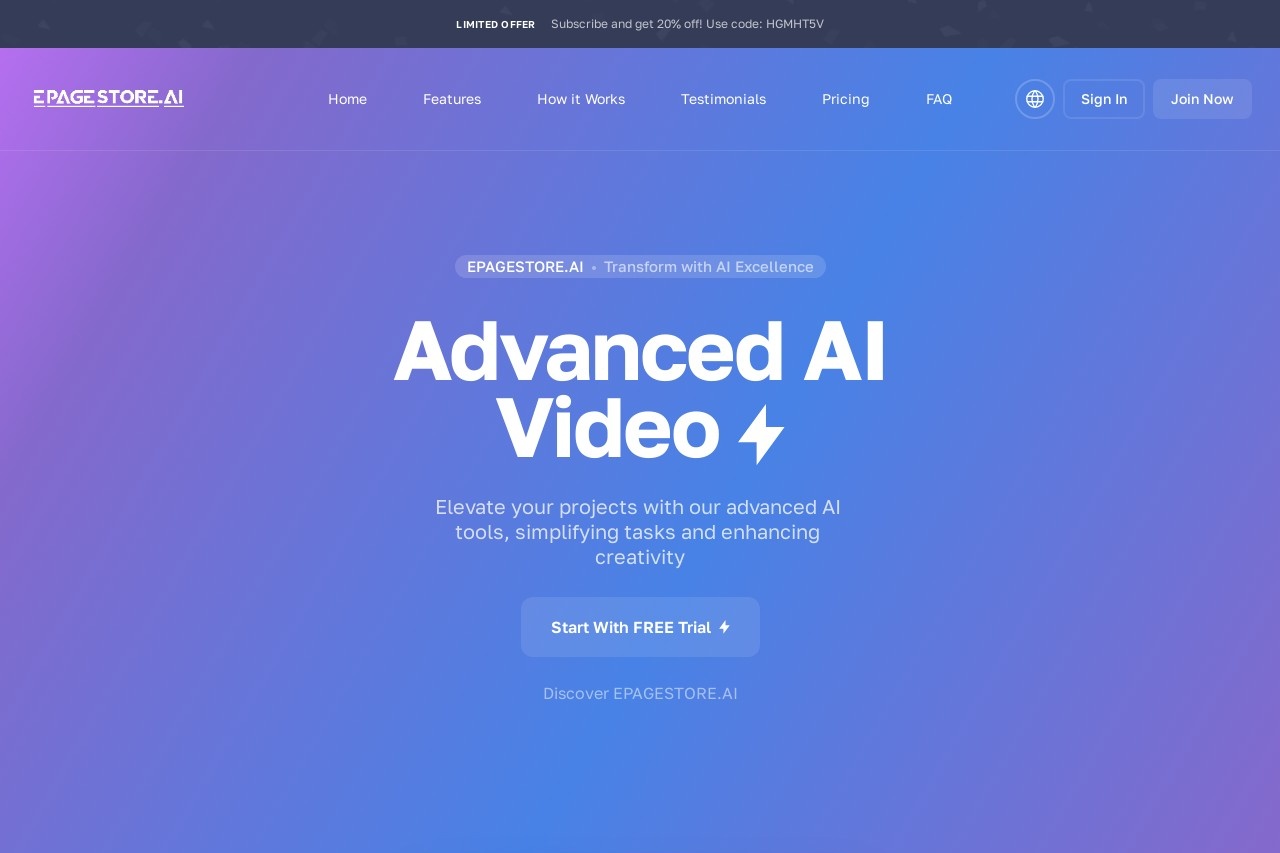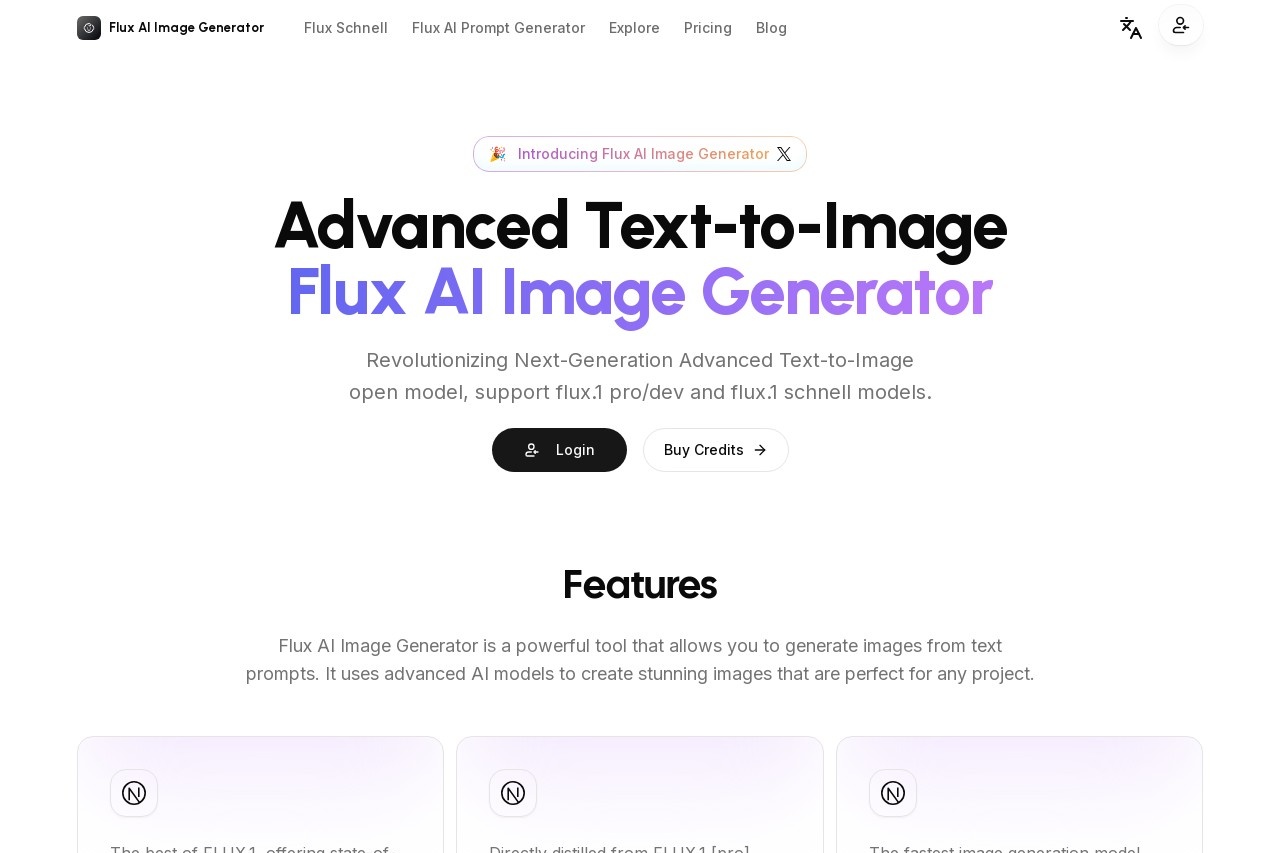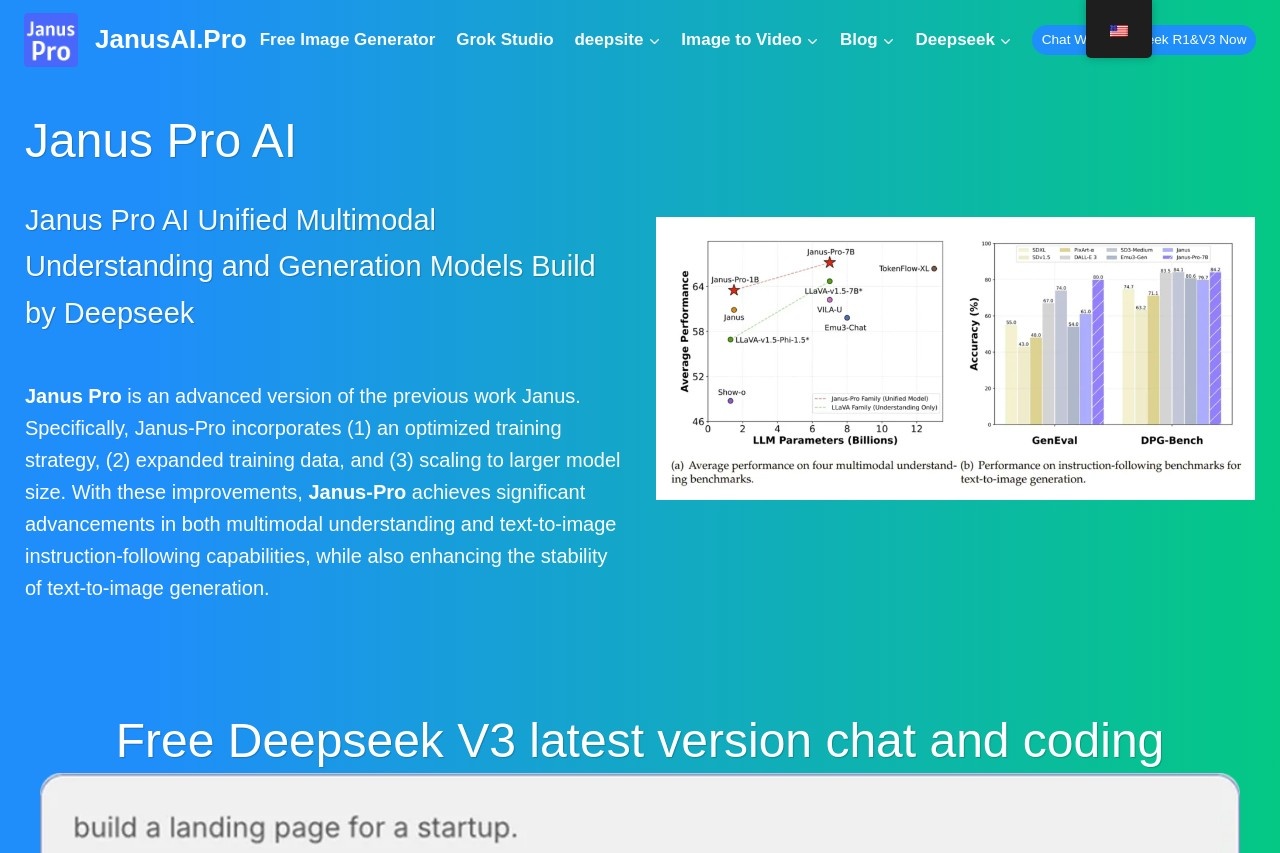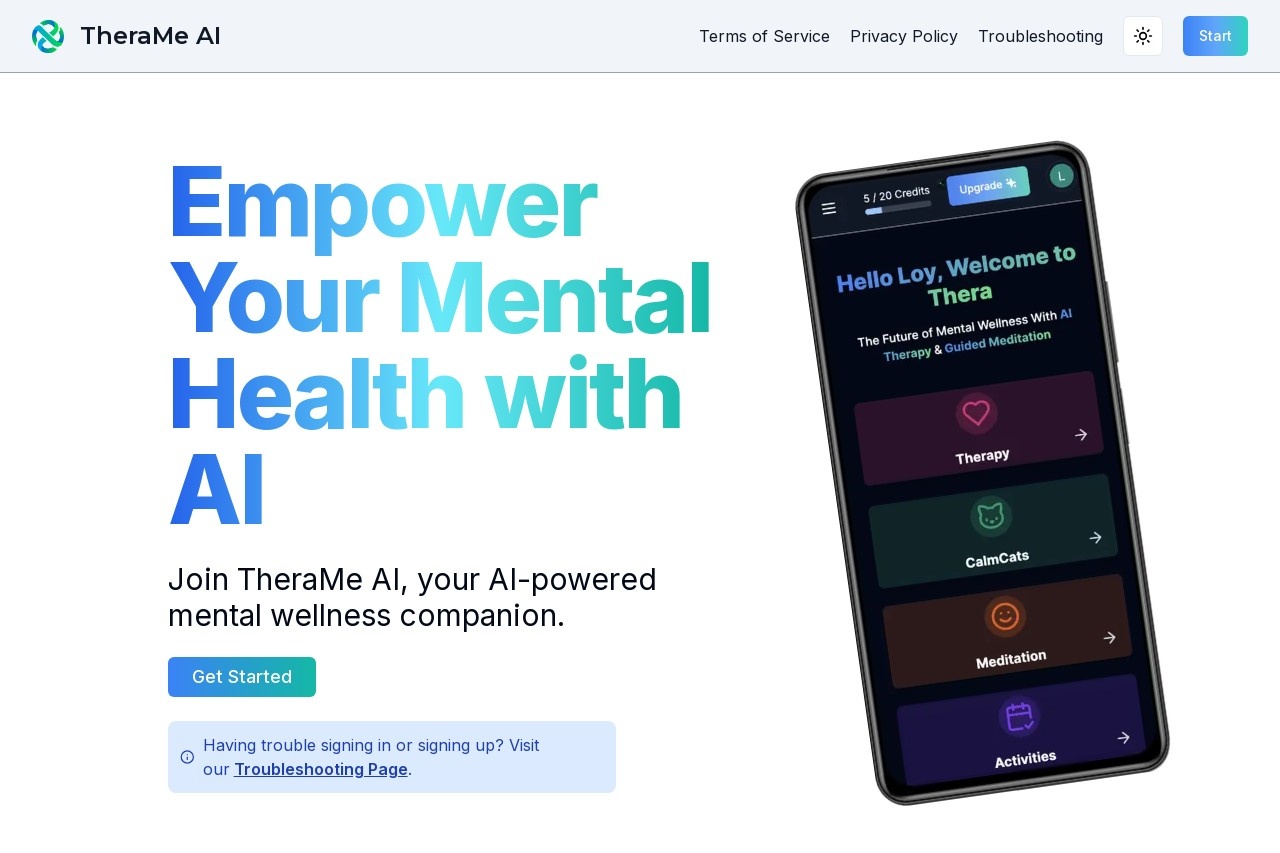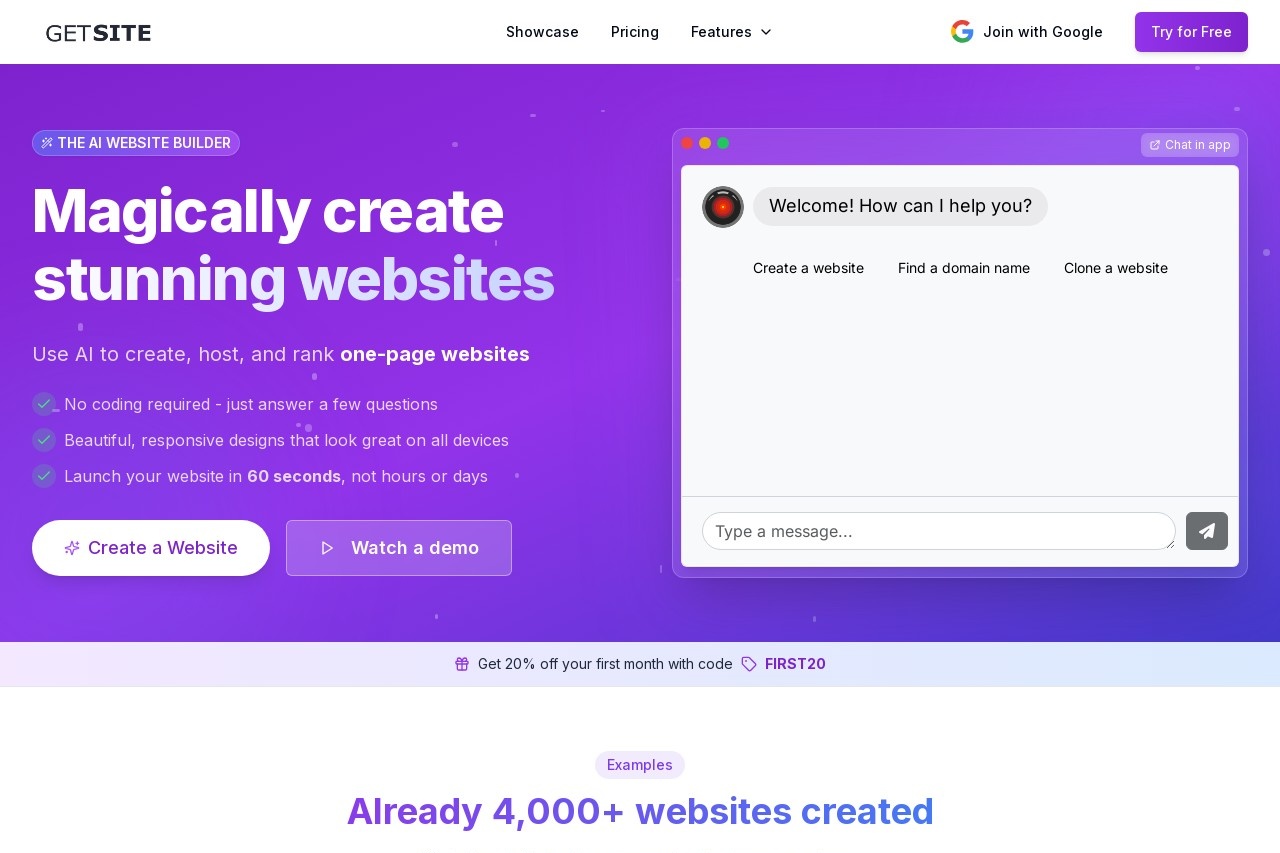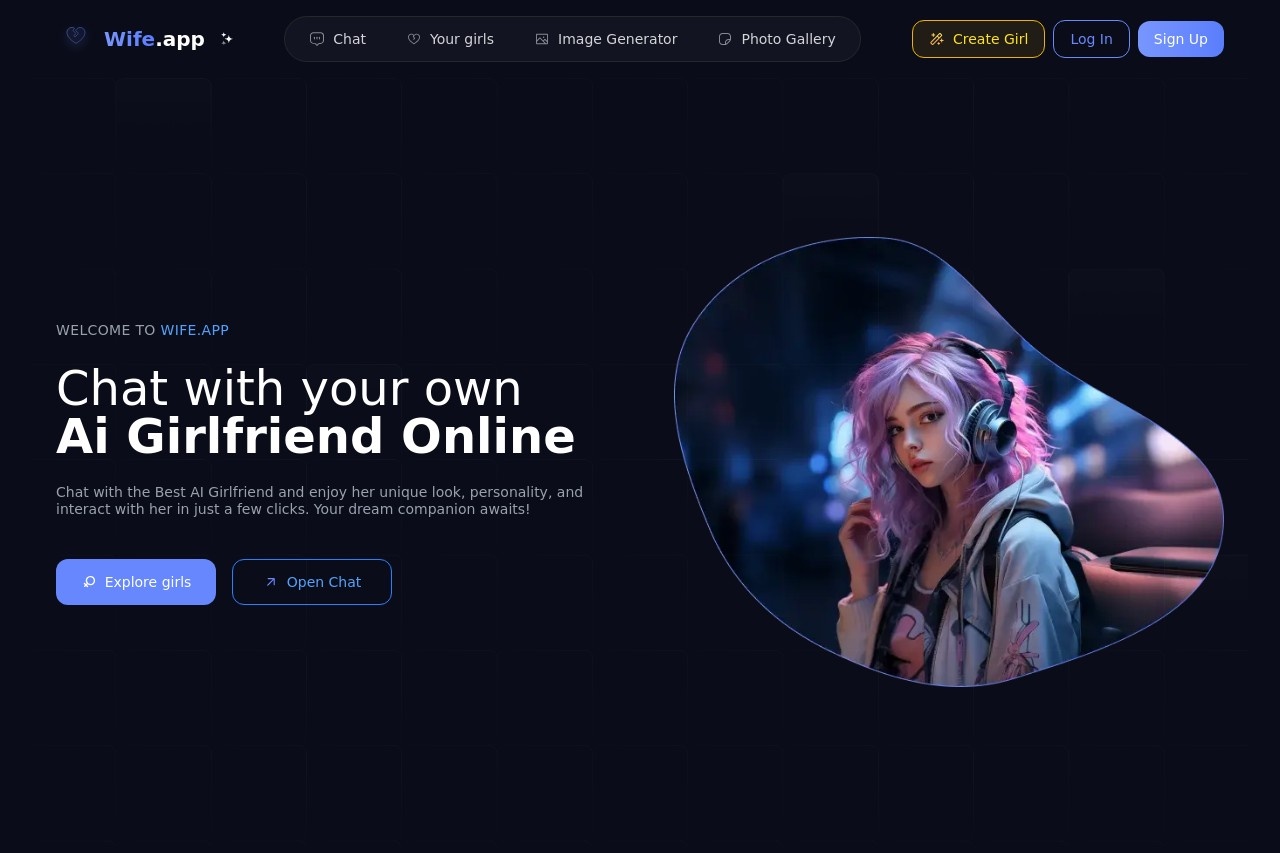BAGEL
BAGEL: An Open-Source Unified Multimodal Model
BAGEL is an innovative open-source framework designed to unify multimodal artificial intelligence (AI) capabilities. By integrating diverse data types—such as text, images, audio, and video—into a single cohesive model, BAGEL simplifies complex AI workflows while maintaining high performance and flexibility.
Key Features of BAGEL
- Multimodal Integration: Seamlessly processes and correlates data across multiple formats, enabling richer context understanding.
- Open-Source Accessibility: Freely available for researchers and developers to modify, extend, and deploy in diverse applications.
- Scalability: Supports both small-scale experiments and large-scale industrial deployments.
- Community-Driven: Encourages collaboration through transparent development and shared improvements.
Applications of BAGEL
BAGEL's unified approach makes it ideal for cutting-edge AI applications, including:
- Content Generation: Creating multimedia content (e.g., text-to-image synthesis or video captioning).
- Human-Computer Interaction: Enhancing chatbots and virtual assistants with multimodal inputs (voice + text + visuals).
- Healthcare: Analyzing medical reports, scans, and patient records for comprehensive diagnostics.
Why Choose BAGEL?
Unlike proprietary models, BAGEL prioritizes adaptability and inclusivity. Its open-source nature allows developers to:
- Customize the model for niche use cases without licensing restrictions.
- Integrate with existing tools and frameworks (e.g., PyTorch, TensorFlow).
- Contribute to a growing ecosystem of multimodal AI solutions.
As AI continues to evolve, BAGEL represents a significant step toward democratizing advanced multimodal technologies. Whether for research or commercial projects, it offers a robust foundation for innovation.

